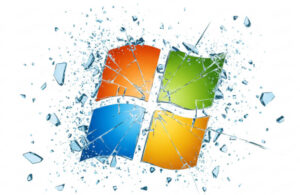Larry the BSD Guy
While the entire BSD world has been buzzing over Ubuntu’s BSD release, the FreeNAS project has been busy releasing version 9.10 as a major precursor to version 10.
Most of the attention this week has been around the release of UbuntuBSD, which in and of itself is a noble effort for those who want to escape from systemd, as the developers have dubbed it according to Phoronix. This manifestation joins Ubuntu 15.10 Wile E. Coyote — sorry, Wily Werewolf — to the Free BSD 10.1 kernel.
To its credit, UbuntuBSD uses Xfce as its default desktop. It also joins a list of other marriages between Linux distros and the BSD kernel: Debian GNU/kFreeBSD, ArchBSD (now PacBSD), Gentoo/BSD and others along the FOSS highway. It’s worth a look and we’ll be giving it a test drive sometime soon.
But for now, there’s a more interesting and significant development in the BSD realm rising on the horizon.
 On the way to major changes in the FreeNAS 10 release later this year which includes management for containers and virtual machines, Jordan Hubbard announced the release of FreeNAS 9.10 this week. Based on FreeBSD and OpenZFS, FreeNAS is a network-attached storage system.
On the way to major changes in the FreeNAS 10 release later this year which includes management for containers and virtual machines, Jordan Hubbard announced the release of FreeNAS 9.10 this week. Based on FreeBSD and OpenZFS, FreeNAS is a network-attached storage system.
The announcement goes into detail, but the attention to virtual machines deserves special mention.
“[E]xperimental support for bhyve virtual machines has been added to this release, along with an interim tool called iohyve for managing them,” the announcement said. In addition, “users with sufficient Unix savvy can create VMs for experimentation purposes.” Because FreeNAS 9.10 and FreeNAS 10 will both use the same version of bhyve, those users can hand-migrate their VM images once the new version arrives.
FreeNAS 9.10 upgrades to FreeBSD 10.3, which allows the same hardware support and performance to this version.
To grab a copy of the new version, you can pick it up at the FreeNAS site.
See you next week.







I wonder about the Ubuntu name usage as I believe this is not done by Canonical and that might be an issue for the creator…..
UbuntuBSD is wrong on so many levels:
1) Use of Ubuntu trademark.
2) Binary inclusion of ZFS.
3) No source?
Yeah I wouldn’t touch that with a ten foot pole.
After further thought, the ZFS issue probably is moot because it is a BSD kernel and not Linux.
The other problems remain.
Who downloads random OS iso files from Sourceforge these days?
Yes, the trademark: We all know how willing Canonical is to allow THAT to be used without having complete control over, well, just about everything. 🙂
Mike’s question above really hits home, though. Who would download ISOs from Sourceforge? There’s something happening here, and what it is ain’t exactly clear . . .
Use of ZFS is fine, it isn’t Linux.
They [he/she?] are working with Debian/kFreeBSD guys and that was their base for it.
Sourceforge have changed ownership and claim to have mended the bad ways….
So, it may not be that bad now.
I’m not installing ANYTHING for which the ENTIRE source isn’t readily available. No “secret sauce” bullshit.
Either I compile it myself, or download a binary released by a trusted group with a well established history. The binary (at a minimum) must be digitally signed with widely distributed and well known public keys.
Anything less is just garbage.
@Larry-There’s something happening here, and what it is ain’t exactly clear . . .
Is he telling me I’ve got to beware?
(intentionally left out a line)
Hope I can get to Texas to eat barbecue with you and Ken.